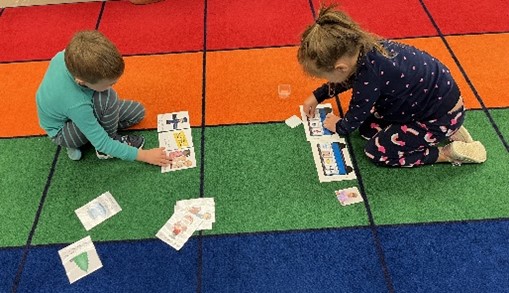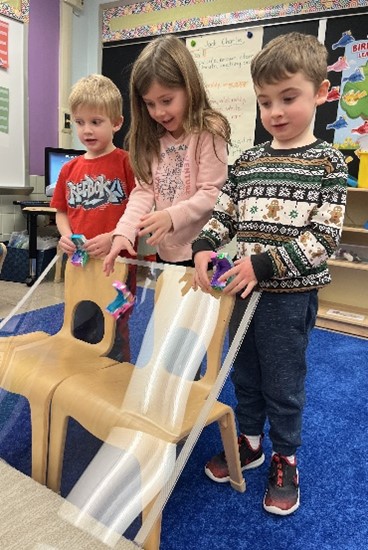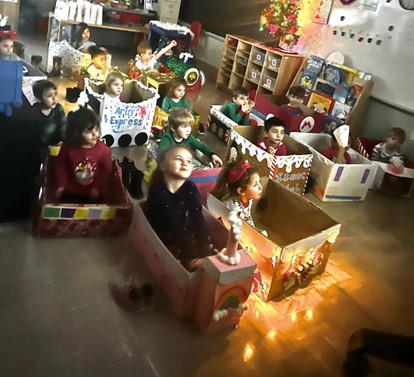
Do you believe?

Latest podcast

Listen to the “PIC Podcasts”
Head Start / Early Head Start FAQs The Private Industry Council discusses frequently asked questions for Head Start and Early Head Start students. Private Industry Council operates the Head Start / Early Head Start program for Beaver and Fayette Counties in the...

During the month of December, PreK was busy exploring one of the many STEM bins we have to help get us ready for the holidays. STEM, short for Science, Technology, Engineering and Mathematics, allows children to explore and discover how things work and make sense about things around them. The STEM bin we focused on this month centered around the book The Polar Express by Chris Van Allsburg.
To start, we first listened to the story. During small groups, students drew a picture in their journal about the first gift of Christmas they would wish to receive.

On the following two days, we discussed the boy losing the bell he received from Santa. The students were presented with the task of building a maze so the bell could find its way back to the boy. Students worked in pairs using straws, scissors, and tape to create a maze for the bell to race through.

Continuing with The Polar Express,we listened to the story once again and the students sequenced the events of the story.
Moving on to another great train story, we listened to The Little Engine That Could by Watty Piper. This book led to a great discussion about carrying things that are heavy and light and the ability to move with or without ease. Over the next two days, students decorated and designed trains to race down a ramp. Students filled their created train engines with little pebbles or larger rocks, buttons or gems and observed how fast or slow their train engine would slide down a plexiglass ramp.

As a culminating activity to this unit, the families were asked to design a train car at home from a box so their child could sit in it to watch the movie The Polar Express at school in their pajamas, complete with milk and cookies. What an enjoyable way to end a fun filled unit.





 724-836-2600
724-836-2600


